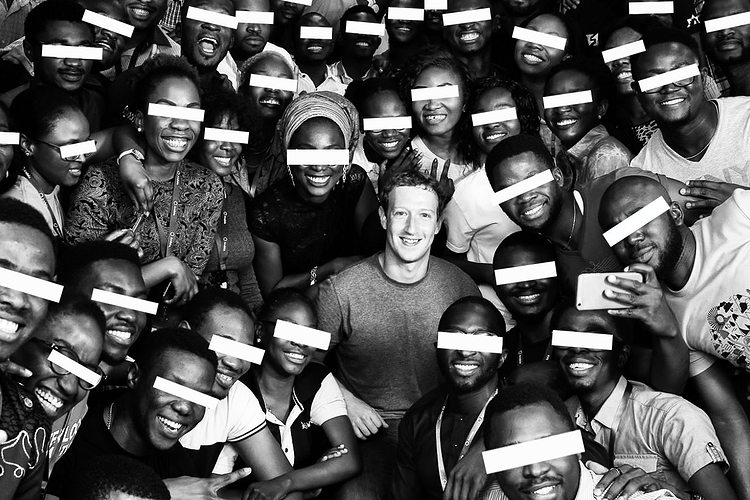In a piece published at Medium, Black activist and organizer DiDi Delgado examines how the discriminatory application of Facebook’s “community standards” disproportionately targets for removal posts that are critical of white supremacy. Read an excerpt of the piece below, or the full text here.
As I write this, I’m currently serving two simultaneous Facebook bans. I, like many Black organizers, have taken to maintaining two accounts — a primary and a backup. It’s infuriating and tedious, but I chalk it up to the Black tax. Since Black organizers are more likely to have their content flagged and removed for “violating community standards,” we’ve had to find workarounds to sustain our online presence and engagement. Currently, my primary and backup accounts are both banned for “promoting hate speech.” That means bigoted trolls lurked my page reporting anything and everything, hoping I’d be in violation of the vague “standards” imposed by Facebook. It’s kinda like how white people reflexively call the cops whenever they see a Black person outside. Except in this case it’s not my physical presence they find threatening, it’s my digital one.
During a Facebook ban, a user’s account retains all functionality in terms of reading and navigating the site, but posting of any kind is prohibited. You can see content; you just can’t communicate. This conveniently prevents users from informing their followers they’ve been unfairly banned, essentially halting us from raising awareness around the issue. I find this doubly insulting because it’s reminiscent of early slave codes, which often made it permissible for enslaved people to read, but illegal for them to write (a potential catalyst for “insurrection and rebellion”). It seems the intent behind silencing outspoken Black folks hasn’t changed in the last few hundred years. And while Mark Zuckerberg hasn’t yet sentenced me to “thirty nine lashes on [my] bare back,” I can’t say for certain that penalty isn’t hidden somewhere in Facebook’s ridiculous terms of service.
I’ve lost count of how many Black organizers have had their Facebook accounts temporarily or permanently banned for posting content that even remotely challenges white supremacy.
Prominent activist and co-founder of Safety Pin Box, Leslie Mac, was recently banned for posting, “silence is violence,” in reference to white Americans not speaking out against racism. Human rights advocate and psychologist, Dr. Mary Merrill, received her third Facebook ban for a thought-provoking post that apparently violated standards for her use of the phrase, “Dear White People.” Nynah Marie, co-founder of Brown Girls Out Loud, was ironically banned for a status criticizing Facebook’s racist banning practices. Community organizer, Sherronda Brown, was banned twice for uploading screenshots of racist and sexist harassment she’d received via Facebook comments and private messages. Although the original messages to Brown were reported without consequence, she was still banned for posting proof of the abuse. That’s like being charged with sexual harassment for posting photos of Casey Affleck. Not cool, Zuck.
Even Shaun King — who was once a guest speaker at Facebook Headquarters — had his account banned for posting a racist email he’d received from a white supremacist. Calling out racism seems to be the common thread between Black Facebook users who repeatedly experience censorship. Just as in real life, when a person of color (or Shaun King) calls out racism they’re promptly silenced and accused of being racist themselves. And this censorship doesn’t just impact activists. Any posts deemed in violation are removed from the pages of EVERYONE who shared them — essentially silencing thousands of Black voices (much to the delight of Mark Zuckerberg, who definitely hates Black people).
Image via Medium.
